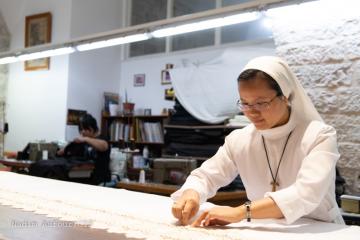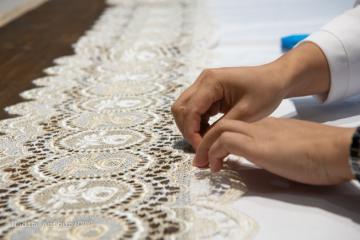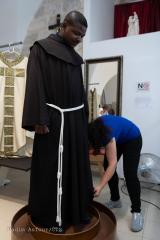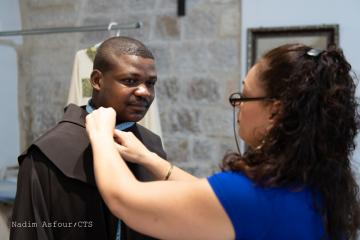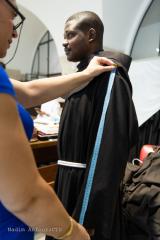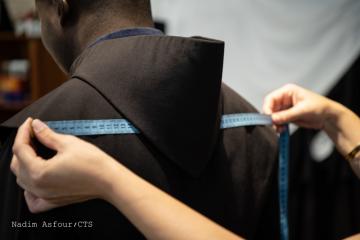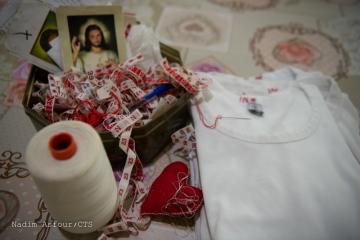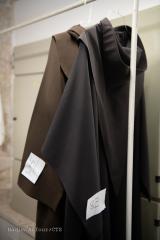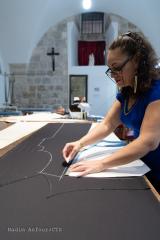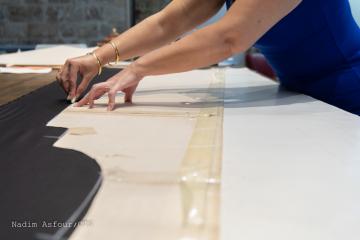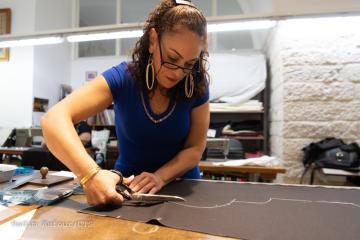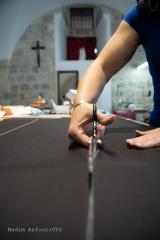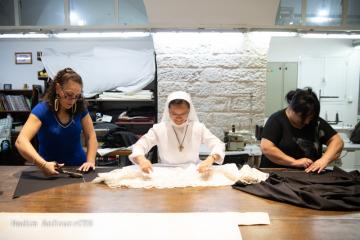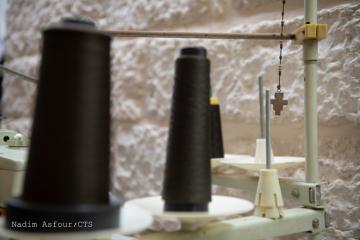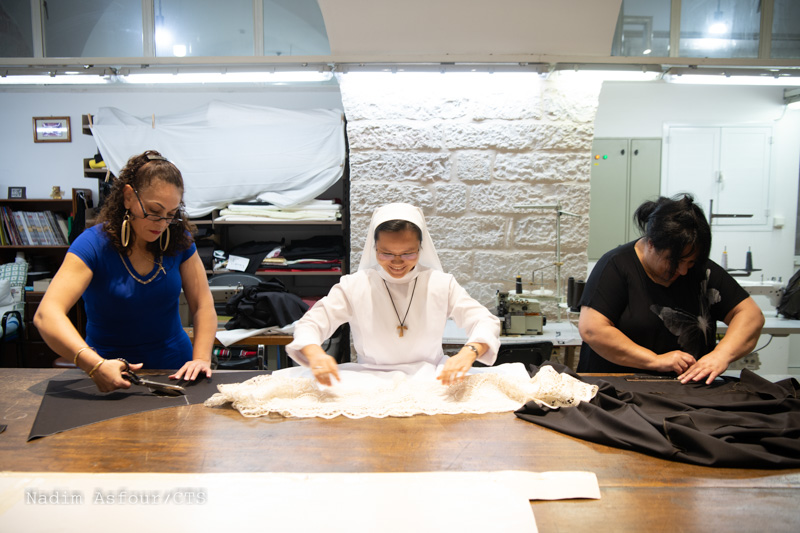
Inside the convent of St Saviour, the heart of the Custody of the Holy Land, there are many offices where Franciscan friars, local and international manual and office workers work side by side on a daily basis in the service of the local and universal Catholic Church. One of the most discreet and silent of these offices is the Sewing Shop and Laundry of the Custody of the Holy Land.
The sound of sewing machines and the scent of fabric softener introduce this place. It is in two rooms, apparently two separate workshops, but actually only one. At the entrance there is the sewing shop, with threads, fabrics, and machines; in the other more internal room, there is the laundry, with the large washing machines and the ironing room.
Seven local employees take care of this service with great dedication and professionalism, serving not only St Saviour’s convent but also the Holy Sepulchre and the many neighbouring convents in the Old City of Jerusalem and even as far as Ein Karem, the hilly part of Jerusalem where the Visitation and the nativity of St John the Baptist are believed to have taken place.
Sister Mariella Dinh, belonging to the Congregation of the Daughters of St Elizabeth and responsible for the two services, tells us about its peculiarities."It is endless daily work, which takes place mainly in the morning,” Sister Mariella tells us. "We are always in communication with the liturgical office which often asks us to make sacred vestments with fabrics and decorations that are almost always new, to enrich the different annual celebrations in the Holy Places, or to recover and add new touches to the embroidery of the vestments already existing. Our two employees of the sewing shop have been working here for 9 years and 2 years respectively, so they are now very fast in meeting every request."
It is not only vestments: the traditional Franciscan habit, is also made here, about a hundred a year, for the students of Philosophy who have just arrived or for those of Theology who are preparing for the solemn profession or the sacred orders, but also for the new missionary friars in the Holy Land. "During the pandemic, as the demand for habits was lower and the pace was more relaxed, we concentrated our work on creating various Franciscan habits, using standard measurements, which we alter then as necessary; we received several requests immediately after Israel reopened,” Sister Dinh continues. "It is often the case that some friars who are leaving or arriving ask for a habit, so we found the way to optimize time and the requests. We have an excellent working rhythm: without the daily requests, the average time to make a habit would be one working day."
The pandemic also made its mark on this service. "The reduction of employees was important and created consequences on the division of work,” Sister Mariella tells us; "before we had various workers for specific tasks and a more intense rhythm, because we also dealt with the laundry of Casa Nova and of other religious facilities which offer hospitality to pilgrims. Now, as the needs have decreased and with fewer personnel, we all do what is necessary in the hope that we can do our service as best as possible.”
Giovanni Malaspina


